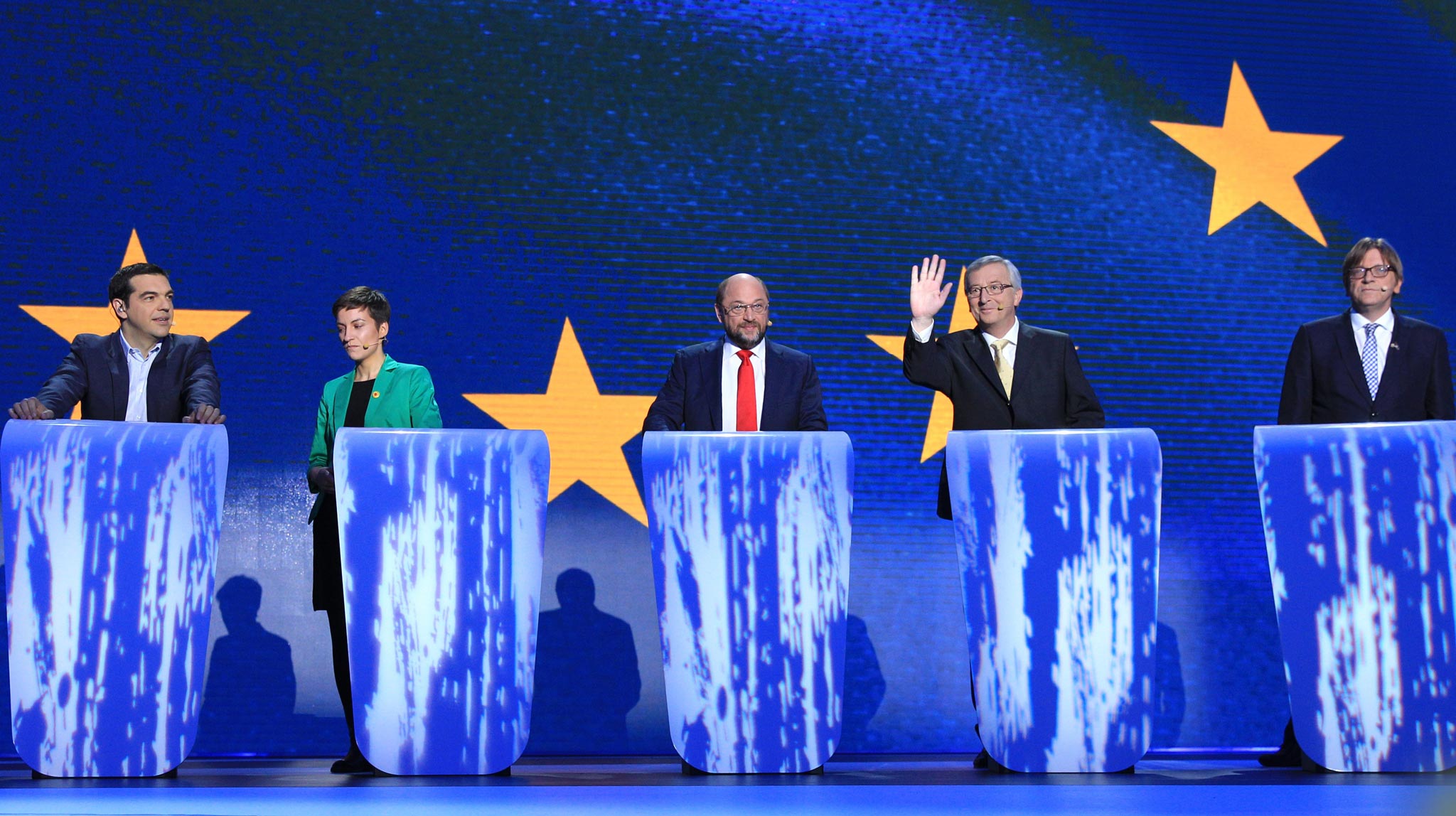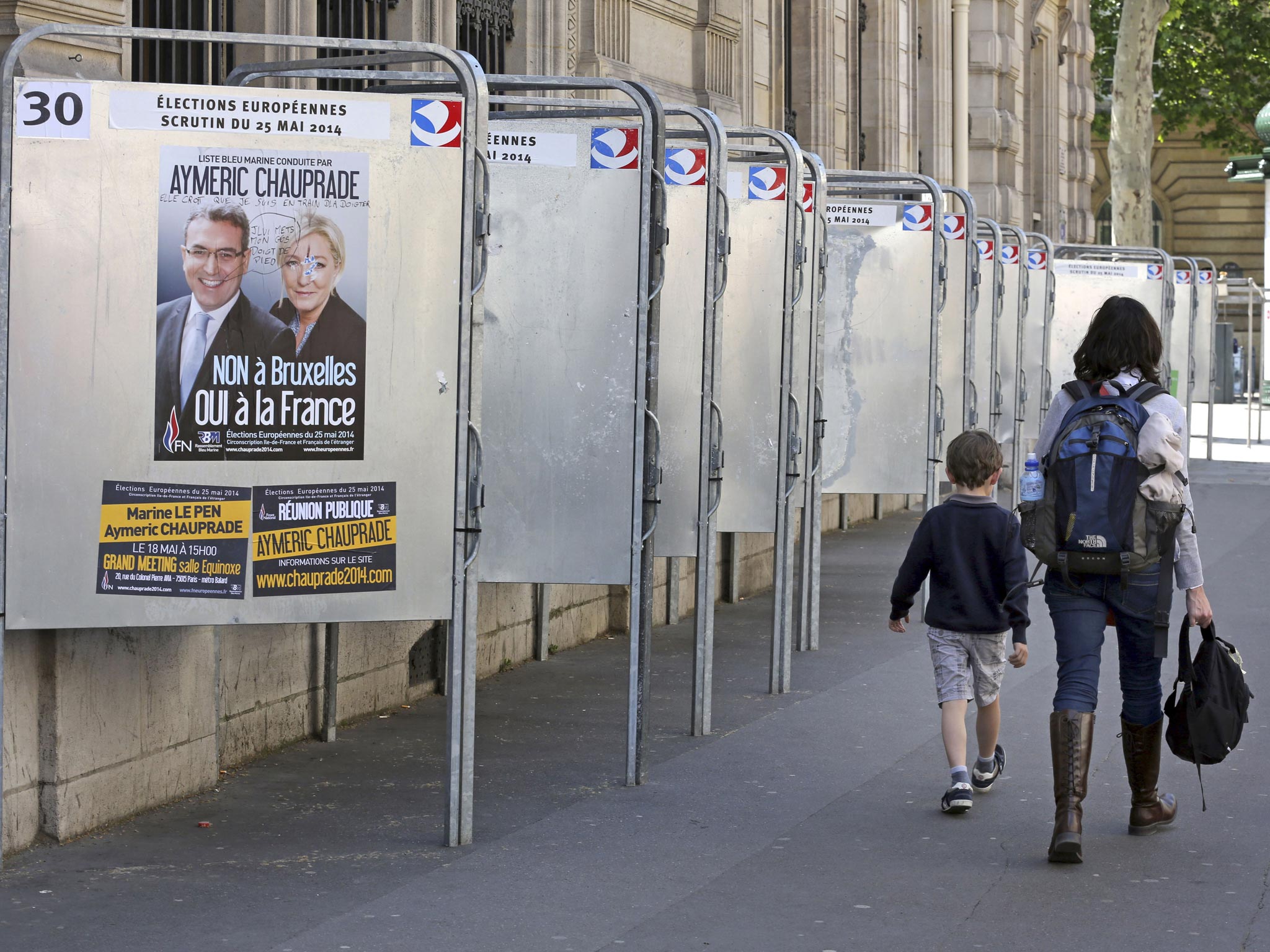EU elections 2014: Can a live debate make Europe care about its elections?
There are effectively five candidates for the presidency of the EU commission. So which one won John Lichfield’s vote?

Your support helps us to tell the story
From reproductive rights to climate change to Big Tech, The Independent is on the ground when the story is developing. Whether it's investigating the financials of Elon Musk's pro-Trump PAC or producing our latest documentary, 'The A Word', which shines a light on the American women fighting for reproductive rights, we know how important it is to parse out the facts from the messaging.
At such a critical moment in US history, we need reporters on the ground. Your donation allows us to keep sending journalists to speak to both sides of the story.
The Independent is trusted by Americans across the entire political spectrum. And unlike many other quality news outlets, we choose not to lock Americans out of our reporting and analysis with paywalls. We believe quality journalism should be available to everyone, paid for by those who can afford it.
Your support makes all the difference.Eurovision was back. This time there were no bearded women but four invisible men in suits and a German woman in a smart green jacket.
A rerun of the song contest? No, something odder and more ambitious than that: an attempt to interest Europeans in the European elections.
The first ever, live, Europe-wide debate for official candidates for high European office managed a miracle of sorts. It recreated the European Union in miniature: at once inspiring and dull, well-meaning and muddled.
The 90-minute debate, broadcast mostly on the internet in 24 languages, was organised by Eurovision, or the European Broadcasting Union with Italian and Irish co-hosts and an enthusiastic, young audience in Brussels.
“Good evening, Europe,” said the Italian moderator, Monica Maggioni. “Your vote will help to decide who will be the next President of the European Commission.” Maybe it will; maybe it won’t. This is the EU: nothing is ever simple. The “national juries” will go to the polls next week: on Thursday in Britain and the Netherlands; on Friday, Saturday or Sunday in the other 26.
The five participants in the Eurovision debate were the official candidates of the main political groups in the European Parliament. They are also, in theory, candidates to become the next President of the European Commission.
There was Jean-Claude Juncker, the former Prime Minister of Luxembourg, who is the candidate for the centre-right or European People’s Party. He looks like a provincial bank manager.
There was Martin Schulz from Germany, President of the European Parliament and candidate for the Socialist Group. He looks like a retired ice-hockey goalie. There was Guy Verhofstadt, former Belgian Prime Minister and candidate for the Liberal Group. He looks like Harry Potter in late middle age. There was Alexis Tsipras, leader of the hard left in Greece and, now, Europe. He looks like a crooner on a Greek cruise ship. Finally, there was Ska Keller, a German green and co-candidate of the European green movement.

The format was rigid: one minute speaking time for each candidate on each subject; two “jokers” or rights of rebuttal. All were asked to speak in English but Mr Juncker spoke in French and Mr Tsipras spoke in Greek.
Mr Juncker, who is sometimes witty and outspoken, was mostly cautious and dull. As president of the Eurogroup of eurozone Finance Ministers, he reminded viewers, he was at the heart of the struggle to solve the eurozone crisis.
“We need balanced public finances without excessive austerity,” he said. His ambition as Commission President would be to end divisions between North and South, East and West. “We need a Europe that concentrates on big issues and doesn’t get involved in small ones.”
Martin Schulz was thoughtful and likeable. He had many of the best lines of the night. “We have the most educated young people that we have ever seen on our continent. Six million of them are unemployed …. People don’t want more Europe. They want another Europe, one that puts its citizens’ interests first.”
Guy Verhofstadt was lively, aggressive and annoying. The solution to Europe’s problems was a new approach, he said. This turned out to be the old approach – the “next big wave of European integration”.
The EU must complete the single market started by the former Commission President, Jacques Delors, he said. “Delors was an intelligent Socialist,” he added, turning to Martin Schulz. “You, Martin, are not always intelligent.”
Mr Tsipras spoke in hard-left jargon and generalities, fulminating against speculators and austerity.
Ms Keller was fluent and enthusiastic. She said that Europe’s future depended on a sustainable, ecologically friendly economy. Her response to almost every question – including the Ukraine crisis – appeared to be to build more wind farms.
One question excited all the candidates more than any other: whether one of them will be accepted by EU governments as the next President of the Commission. According to the Lisbon Treaty, the governments must “take into account” the results of the European elections when choosing the man or woman who will replace Jose Manuel Barroso. The governments say this commits them to nothing. However, the European Parliament has the final vote.
It says that it will nominate the candidate of the largest single political group after next week’s polls and expects the governments to concur. In practice, this will be either Mr Juncker (centre-right) or Mr Schulz (Socialist).
Many governments want neither man. If they persist in nominating someone else, there will be war. Mr Juncker said: “The 28 governments have signed the Lisbon Treaty and the Parliament has ratified it. It would be a denial of democracy. If the results of the elections are not respected, no one would vote in 2019.”
But 60 per cent of EU voters will probably not vote next week. Two-thirds, in a recent poll, said they had never heard of either Mr Schulz or Mr Juncker. What kind of democratic mandate is that?
In the running: The candidates
Jean-Claude Juncker, 59, is candidate for the centre-right European People’s Party. He was Prime Minister of Luxembourg from 1995 to 2013, making him one of the longest-serving democratically elected leaders in the world. He trained as a lawyer but has always been a politician.
Franziska Maria “Ska” Keller, 32, is a German Green Euro MP and the joint candidate for the European green movement. She is married to a Finnish green activist and speaks six languages.
Martin Schulz, 58, candidate of the European Socialists, is President of the European Parliament and was leader of its Socialist group. His football career was cut short by injury. He became a politician in the 1980s.
Alexis Tspiras, 39, candidate for the European hard left, is the leader of Greece’s Opposition. He became active in Communist student politics in the early 1990s.
Guy Verhofstadt, 61, leader of the European liberal group, was Prime Minister of Belgium from 1999 to 2008. His hopes of being the European Commission President in the 1990s were vetoed by John Major. Ironically, his nickname in Belgium at the time was “Baby Thatcher”.
Join our commenting forum
Join thought-provoking conversations, follow other Independent readers and see their replies
Comments